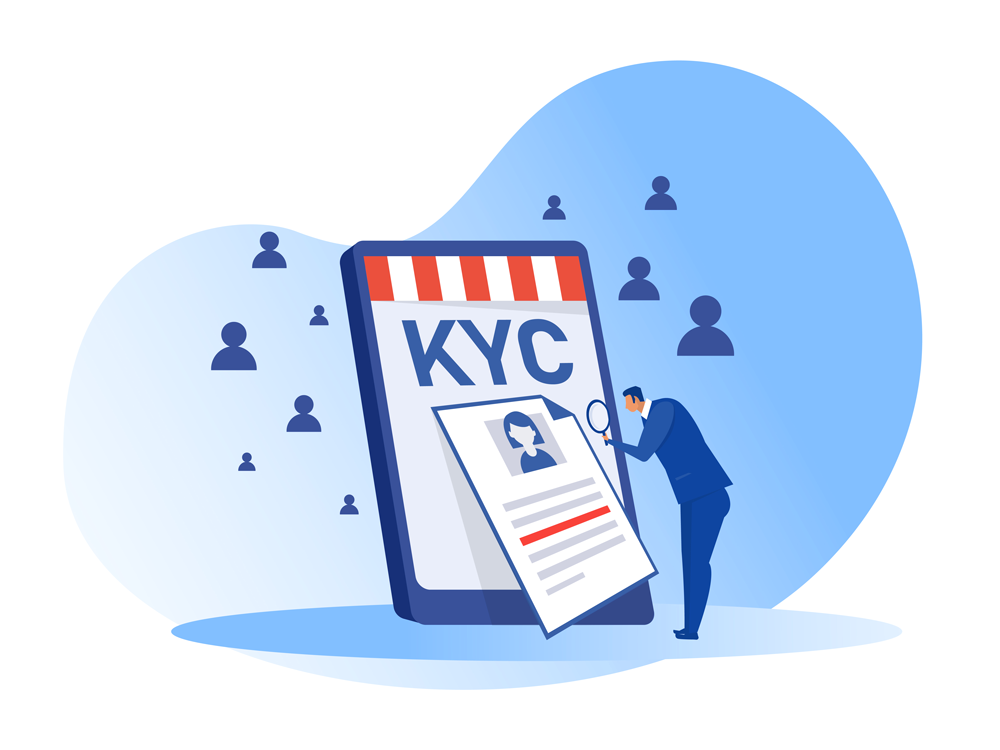
KYC, or Know Your Customer, is a key process used by financial institutions to verify the identity of their customers. It is a vital component of the fight against money laundering (AML) and the fight against the financing of terrorism (CTF). The KYC process ensures that financial institutions have a comprehensive understanding of their customers, their financial activities, and the associated risks. Let's go deeper into the importance and implementation of KYC in the financial world.
Why is KYC important?
Prevention of financial crime: KYC measures are designed to deter and detect illegal activities such as money laundering, fraud, and terrorist financing. By establishing the identity and background of customers, financial institutions can identify and report suspicious transactions, which helps law enforcement agencies effectively fight financial crime.
Regulatory compliance: KYC procedures are mandatory for financial institutions to comply with international, regional, and national regulations. Regulatory bodies impose strict requirements on financial institutions to implement effective KYC processes in order to ensure the integrity and stability of the financial system.
Risk management: KYC enables financial institutions to accurately assess the risk profile of each client. By understanding clients' backgrounds, financial activities, and sources of funds, institutions can identify and mitigate potential risks associated with money laundering, fraud, and other illegal activities.
KYC process and implementation
The KYC process usually involves gathering information about the client, verifying the information provided and assessing the associated risks. Here are the basic steps involved in the process:
Customer identification: Financial institutions collect basic customer information, including name, address, date of birth and identification documents such as passports or ID cards.
Identity verification: Institutions use various methods to verify the identity of clients, such as comparing identification documents with reliable sources, conducting database checks and using biometric technologies.
Risk assessment: Financial institutions assess the risk associated with each client based on factors such as occupation, source of funds, transaction patterns and country of origin. Higher risk clients may require additional attention during assessment.
Continuous monitoring: KYC is not a one-time process. Financial institutions continuously monitor customer transactions to detect suspicious activity and update customer data as necessary.
Callidus Pay KYC process
The Callidus Pay user is guided step by step in the registration process in the mobile application. In order to perform the KYC check, the user must prepare the following documents before entering the identification process in the app:
- identification document (identity card or passport)
- proof of address (any bill (electricity, water, utilities, heating) showing the name and surname of the user and the corresponding address).
During the KYC check, the user will need to take a photo of those two documents and send them for verification, and it will also be necessary for the user to record a video of his face and say three numbers in order for the verification to be complete. During the KYC process, the user defines his Intergiro PIN and/or biometrics, an additional authentication factor that should be present in addition to the Callidus PIN and biometrics. You can read more about PIN and biometrics on our website, on the Frequently Asked Questions page in the "Registration of Private Package Owners" section.
Challenges and progress in KYC
Implementing KYC poses certain challenges for financial institutions, including the cost and time required to conduct adequate due diligence, ensure data privacy and security, and effectively manage the customer experience.
To overcome these challenges, technology has played a significant role in improving the KYC process. Financial innovations such as automated identity verification, machine learning and data analytics have simplified KYC procedures, enabling institutions to assess clients faster and more accurately. In addition, the growing number of digital identities and secure data sharing protocols enable a seamless KYC process between multiple institutions, improving efficiency while preserving data privacy.
Conclusion
KYC, as a key component of the financial industry, plays an important role in preventing financial crime, ensuring regulatory compliance, and risk management. By studying customers and their financial activities, financial institutions can maintain the integrity of the financial system and contribute to global efforts against money laundering, fraud, and terrorist financing. As technology continues to advance, KYC processes become more efficient, allowing institutions to strike a balance between compliance and a seamless customer experience.
In accordance with the latest trends, Callidus Pay carries out a KYC check during user registration in order to bypass all tedious and time-consuming administrative procedures when opening bank accounts and ordering payment cards, all with the aim of creating the best possible user experience. Users can register a Callidus Pay account, open an account and order a physical or virtual card within minutes, which changes the multi-day traditional process of opening a bank account.